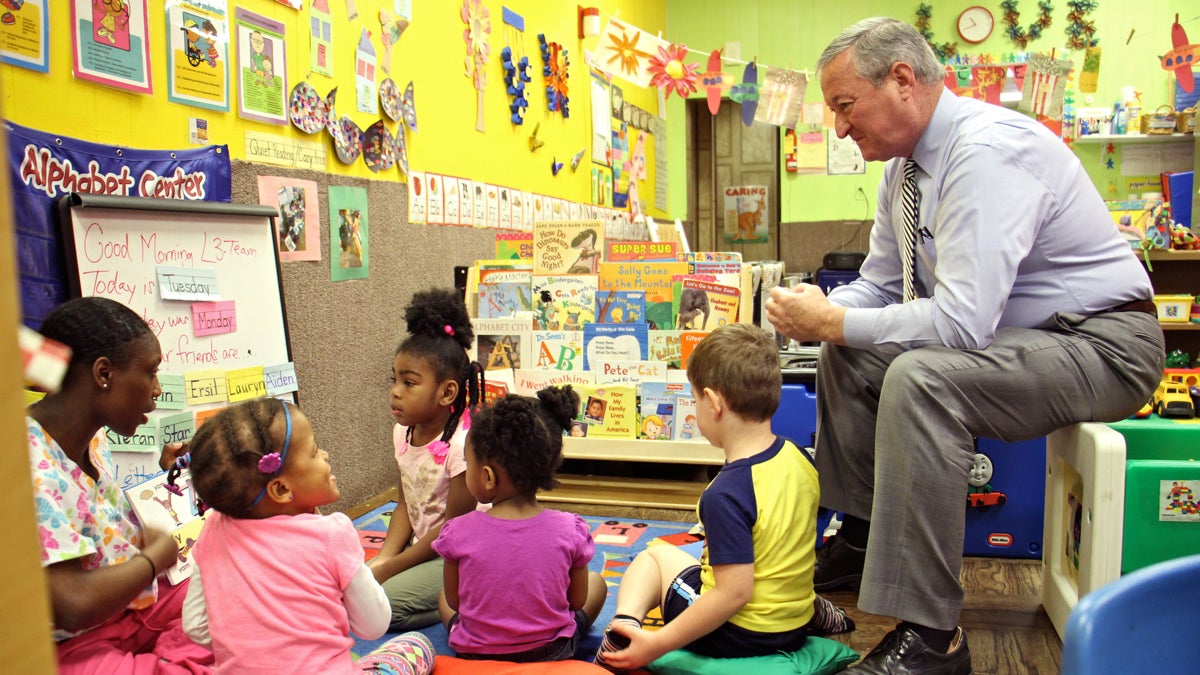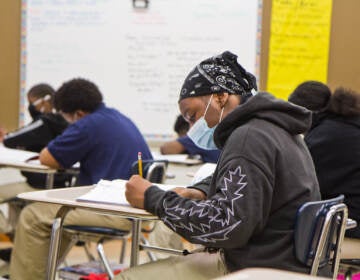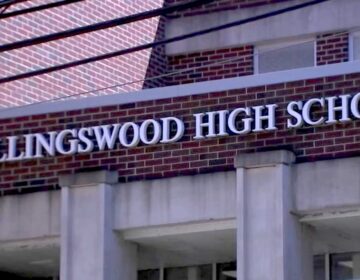Here’s what education advocates should expect from the soda tax money in Year One

Philadelphia Mayor Jim Kenney sits in on a preschool class at Little Learners Literacy Academy in South Philadelphia. (Emma Lee/WHYY)
Education advocates in Philadelphia have reason for good cheer this week. Actually, they have 27.5 million reasons.
That’s the number of dollars earmarked for the city’s Office of Community Schools and Universal Pre-K in the fiscal year 2017 budget. As you’ve likely heard by now, that injection of cash comes via the sugary beverages tax approved Thursday by City Council.
So what should Philadelphians expect in the coming fiscal year from their tax dollars?
On the pre-K front, the city expects to add 2,000 new seats in January and another 1,000 in September 2017. But officials don’t know for sure where those seats will be. The city will soon publish requests for qualifications (RFQs), essentially calls to the city’s pre-k providers asking them to apply for this new pile of money.
The city wants to target certain neighborhoods for expanded pre-K — in particular, areas with high poverty and limited child care options. In a set of recommendations issued earlier this year, the city commission on universal pre-K mapped out neighborhoods by need.
One of the RFQs will be for child care providers the city already deems to be high quality. The money in that pot will be used to expand these already-successful centers.
The city will also steer money toward centers that are on the verge of becoming high quality, but need a little extra push. In those cases, the funding might not actually go toward adding new seats, but rather improving extant seats. Lower-quality providers will get provisional contracts – somewhere in the neighborhood of 18 to 24 months – with a mandate that they improve their quality during the contract period.
How much money ends up in each of these pots depends on which providers apply. It’s also worth noting that the city plans on using a “mixed-delivery system,” meaning private providers and pre-K programs housed in public schools will be eligible to receive expansion money.
The city’s total pre-K budget for fiscal year 2017 will be $23.25 million.
Funding the community school initiative
Community schools make up a much smaller slice of the soda-tax pie. The city will sink $4 million into the initiative during the 2016-17 school year. That money will go toward identifying and resourcing five to seven community schools. Those schools will be selected around mid-July, said Susan Gobreski, the mayor’s point person on community schools. All schools chosen will be traditional, district-run schools. Charters are not eligible.
Community schools are supposed to double as hubs for health services and other local wellness programs. Combined, the first batch of community schools will get $1.75 million for contracted services, $250,000 for grants, and $400,000 for materials and supplies. Each community school will also have a coordinator who helps evaluate what outside services would best fit a given site. The mayor’s plan budgets $1.6 million in year one for personnel.
As for evaluating the progress of community schools, Gobreski said a final rubric is still in the works. The city will be looking at a number of softer metrics, such as community satisfaction and participation. It also plans to keep a close eye on student attendance and discipline data. There likely won’t be a big focus on academic outcomes, at least not in the near future.
“It takes a few years for us to start seeing academic results,” said Gobreski. “Meanwhile we’re gonna be improving quality of life for children and families, and that’s incredibly important all by itself.”
WHYY is your source for fact-based, in-depth journalism and information. As a nonprofit organization, we rely on financial support from readers like you. Please give today.





